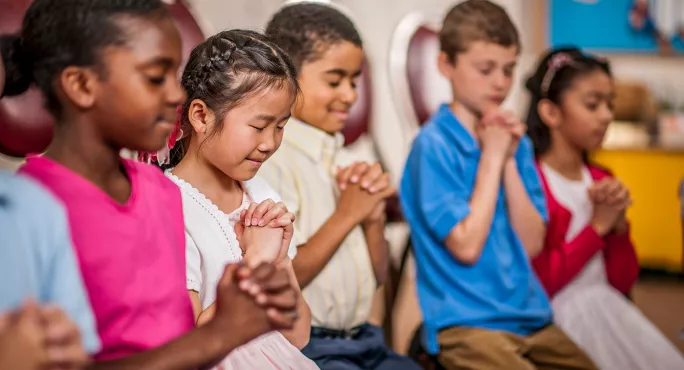Daily worship in schools opposed by most leaders

Most senior leaders in state schools do not support a law that requires daily acts of collective worship in school, a survey suggests.
The government must now recognise the “divisive and deeply unpopular nature” of the collective worship law in schools and repeal it, according to the National Secular Society (NSS), which commissioned the survey by Teacher Tapp.
The issue of religious practice in English schools is becoming “increasingly fraught” and imposing worship on pupils “adds to this tension”, secular campaigners have told the education secretary Gillian Keegan.
The warning comes after Michaela Community School in Brent, north London, faced legal action from a Muslim pupil against the school’s ban on prayer rituals.
Last month, the school defeated the legal challenge from the student, who claimed the policy was discriminatory and unlawfully breached her right to religious freedom.
A poll of 1,934 senior leaders and headteachers in England, shared with the PA news agency, found that 70 per cent disagree that all schools should be legally required to hold daily acts of broadly Christian collective worship.
The survey, carried out by the Teacher Tapp app in April, suggests that 12 per cent of senior leaders support the collective worship law in schools.
Religious practice in schools is ‘increasingly fraught’
In a letter to the education secretary earlier this year, the NSS said teachers were “deciding en masse that collective worship has no place in inclusive 21st-century schools”.
- Latest: DfE to allow special faith-based academies to open
- Worship: Michaela Community School wins High Court prayer ban case
- Need to know: What is the faith-school cap?
In it, the NSS chief executive Stephen Evans said: “The issue of religious practice in schools is becoming increasingly fraught, as the recent events at Michaela Community School have demonstrated.
“A law requiring acts of broadly Christian worship in schools unnecessarily adds to this tension.”
Under the law, parents can request that children under 16 be withdrawn “wholly or partly” from collective worship.
Schools can also apply to the Standing Advisory Council on Religious Education for an exemption from the legal requirement for Christian collective worship, known as a “determination”.
Mr Evans said: “Our population is more irreligious and religiously diverse than ever before. It is therefore unsurprising many teachers find imposing worship on children objectionable and unconducive to a pluralistic and cohesive learning environment.”
DfE has ‘no plans’ to review policy on collective worship
Earlier this year, the education minister Baroness Barran told the NSS that the government had “no plans” to review its policy on collective worship in English state schools.
The NSS has called for a meeting with Department for Education (DfE) ministers or officials about the policy.
Mr Evans told Baroness Barran in the letter: “Teachers don’t support it and most schools flout it.
“We are at a loss to understand why the government is so unwilling to consider the overwhelming support for abolishing the collective worship obligation in schools and to take the necessary steps to reform the law to reflect the changing attitudes and values of our society.”
Pepe Di’Iasio, general secretary of the Association of School and College Leaders, said: “The law requiring schools to hold daily acts of worship does seem increasingly anachronistic, and is probably more honoured in the breach rather than the observance.
“Whether it is worth the parliamentary time and controversy entailed in actually repealing the law is debatable, when there are so many other pressing issues in education, such as funding and teacher shortages.”
He added: “Certainly, bringing pupils together at a point in the day provides a valuable opportunity to reflect on a range of issues, such as their welfare, education and shared values.”
A DfE spokesperson said: “Collective religious worship is an important part of school life. It serves as a mechanism by which schools can develop and celebrate their ethos and values.
“This law allows schools to tailor their provision to suit their pupils’ needs. It also provides the opportunity for schools to promote the moral and social development of their pupils in a way that best suits the needs of the community.”
For the latest education news and analysis delivered directly to your inbox every weekday morning, sign up to the Tes Daily newsletter
Register with Tes and you can read two free articles every month plus you'll have access to our range of award-winning newsletters.
Keep reading with our special offer!
You’ve reached your limit of free articles this month.
- Unlimited access to all Tes magazine content
- Save your favourite articles and gift them to your colleagues
- Exclusive subscriber-only stories
- Over 200,000 archived articles
- Unlimited access to all Tes magazine content
- Save your favourite articles and gift them to your colleagues
- Exclusive subscriber-only stories
- Over 200,000 archived articles
topics in this article



